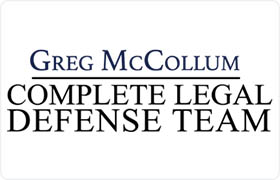Murrells Inlet Criminal Lawyer, South Carolina, page 2
Sponsored Law Firm
-
 x
x

Click For More Info:
-
Greg McCollum Complete Legal Defense Team
1012 38th Avenue North Suite 202 Myrtle Beach, SC 29577» view mapCriminal Defence Law Complete Legal Defense Team
Our goal at the Complete Legal Defense Team is to examine the facts and circumstances completely and help our clients.
800-634-0690
Mark Andrew Nappier
Personal Injury, Wrongful Death, Car Accident, Child Custody, Criminal
Status: In Good Standing
Thomas William Winslow
Criminal, Divorce & Family Law, Personal Injury, Medical Malpractice
Status: In Good Standing
Willard D. Hanna
Other, Litigation, Lawsuit & Dispute, Criminal, Accident & Injury
Status: In Good Standing
Robert Johnston
Admiralty & Maritime, Workers' Compensation, Elder Law, DUI-DWI
Status: In Good Standing
Robert John Johnston
Accident & Injury, Criminal, Traffic, Wrongful Death, Workers' Compensation
Status: In Good Standing Licensed: 30 Years
David E. Wells
Real Estate, Divorce & Family Law, Criminal, Bankruptcy & Debt
Status: In Good Standing
Frederick Miles Adler
Lawsuit & Dispute, Estate, Criminal, Accident & Injury
Status: In Good Standing
 Greg McCollum Myrtle Beach, SC
Greg McCollum Myrtle Beach, SC AboutGreg McCollum Complete Legal Defense Team
AboutGreg McCollum Complete Legal Defense Team Practice AreasExpertise
Practice AreasExpertise
